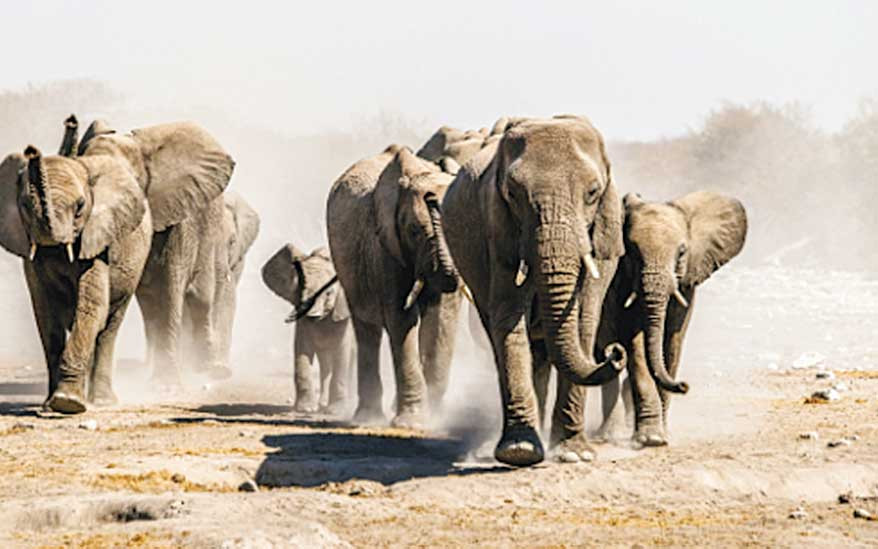
WILDLIFE is fuelling hunger in Kariba as animals destroy crops every season, leaving villagers counting losses, it has been established.
Kariba Member of Parliament Shine Gwangwava said rural communities were battling for survival as efforts to halt wildlife invasion of farming areas were yielding little results.
“I confirm that hunger is affecting most villages in rural Kariba. It’s unfortunate some of our villagers are being troubled by wild animals that destroy their crops. Human and wildlife conflict is fuelling hunger around communities and it is a big challenge," he said.
Residents in both Kariba rural and urban areas rely on Lake Kariba as a source of livelihood, the same source of sustenance for wildlife, hence the source of much of the human-wildlife conflict.
“We have large numbers of wild animals competing with villagers for both food and water. It is one of the toughest lives that we are enduring annually," he said.
“Some illegal fishermen face torture by authorities. They are now forced to play and hide seek with Zimbabwe Parks and Wildlife Management Authority (ZimParks) and security officers manning the lake shores.”
The worst affected rural communities are under chiefs Mola, Msampakaruma, Negande and Nebiri.
He expressed concern that efforts to curb the human-wildlife conflict have not been successful.
- Title rivals face tough weekend
- Interactive feedback : In pursuit of a non-binary narrative
- DeMbare, FC Platinum fight for Chibuku Cup
- ZVDT laments lack of development in Zambezi Valley
Keep Reading
“We used to report to Nyaminyami Rural District Council officials to attend to problems being caused by animals. But on numerous occasions, they fail to combat the situation due to staff shortage and resource limitations," said Gwangwava.
A local villager Moses Sianembwa said an acute food shortage was haunting villagers in rural Kariba and appealed to the government to intervene.
“We appeal to the government to help us win the fight against food insecurity in Kariba constituency,” he said.
ZimParks spokesperson Tinashe Farawo confirmed that overpopulation of animals has been the biggest challenge and called on communities to be involved in wildlife management as stipulated in international treaties such as Convention on International Trade in Endangered Species, among others.
“We aim to provide the best sustainable services on wildlife and environmental awareness for the current and future generations,” he said.
"These are some of the major challenges especially in areas that are adjacent to the national parks. Nyaminyami rural is not spared either. Conflict between people and wildlife is becoming one of the biggest conservation challenges in Zimbabwe and we need a holistic approach to solve the issue.”
Farawo added that the increased animal population, especially elephants, had had a significant impact on the habitat, adding that if the populations continued to grow unchecked, the animals would threaten the ecosystem they depended on for survival.







